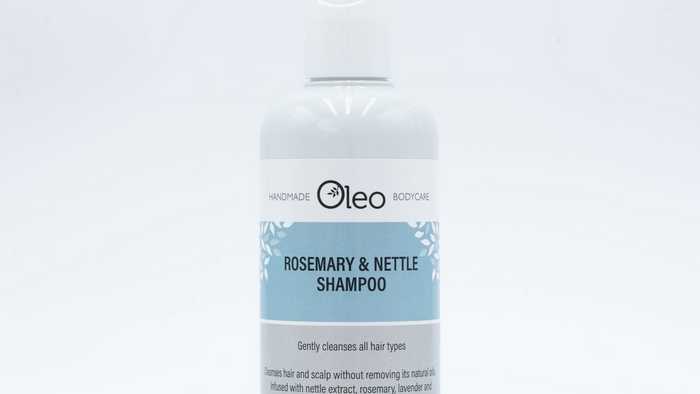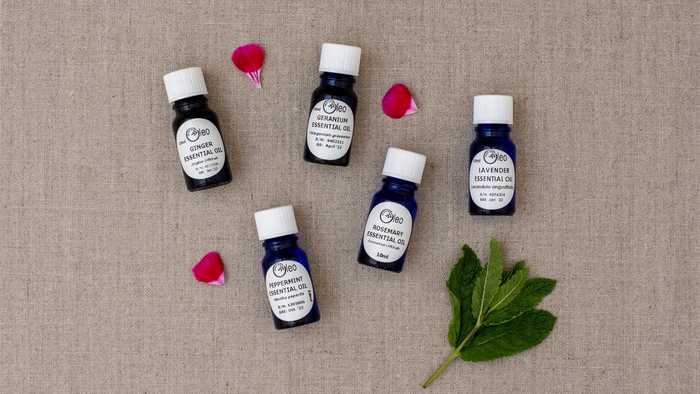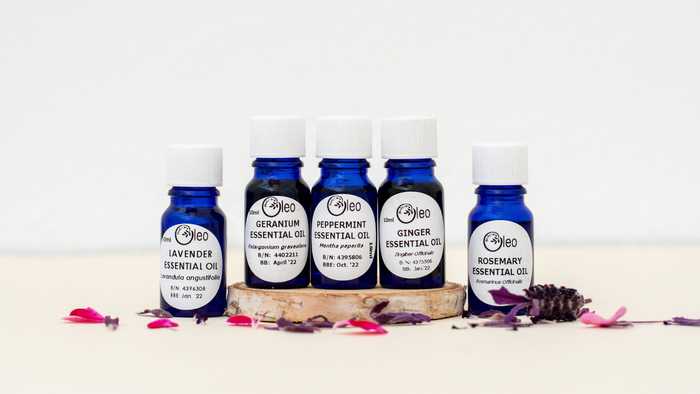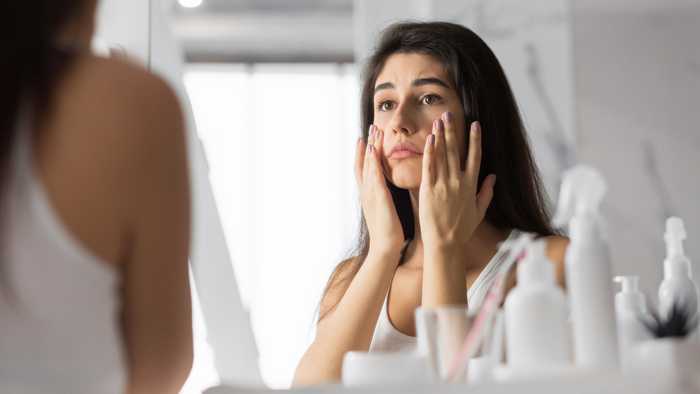
5 Ingredients to Avoid in Skin and Body Care Products
Reading time: 10-15 mins
We take a look into the chemicals and ingredients that we think you should avoid in body care and skincare. From toxic ingredients like artificial fragrances to ecologically damaging products like palm oil. We will then examine the natural alternatives found in the Oleo range.
It's important to note that Cosmetic Regulations in the EU (and the UK) are the strictest in the world giving you some comfort, banning over 1,300 ingredients, compared to just 30 in the US.
Choosing natural and vegan means being in harmony with nature, opting for skin-gentle products and supporting smaller independent brands. Being a natural beauty brand also encompasses sustainability, conscious living and cruelty-free.
We've put together our top 5 toxic ingredients you should avoid in your personal care products so you feel empowered to shop safely.
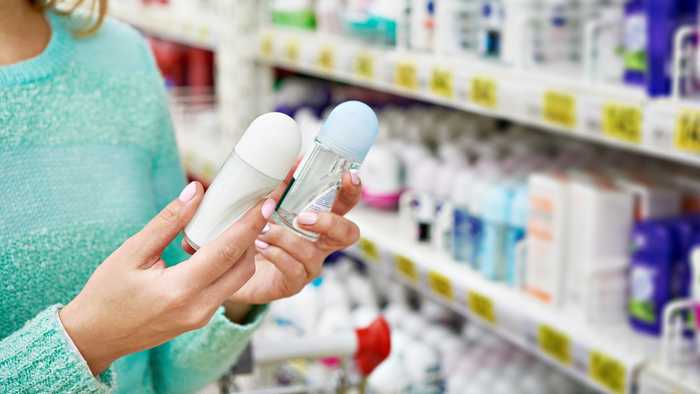
Aluminium
Aluminium compounds are used in antiperspirants to stop the sweat ducts from releasing sweat to the surface of the skin. Some health studies report links to breast cancer and Alzheimer's. Whether or not these claims are true, we believe this to be unhealthy as the body is designed to sweat and it is part of a healthy elimination process. However, we do understand that sometimes people need a deodorant. This does not stop the body from sweating but it does slow down the bacterial breakdown of the sweat which is what eventually causes the bad smell.
Aluminium alternative
For our Fresh & Fruity Deodorant, we prefer to use deocrystal stone powder instead (INCI Name: potassium alum). Potassium alum and aluminium are two different substances. They possess different chemical properties which create different chemical attributes. Potassium alum molecules have a negative ionic charge, making them unable to pass through the cell wall, so they are not absorbed. This is why alum is safe to use. It stays on the surface where it inhibits bacterial growth, thus giving a deodorant effect. In addition, we use essential oils that have anti-bacterial properties.
Using this raw material in your natural deodorants gives you protection for up to 12 hours.
SLS/SLES
Do you find it hard to decipher these common skin care acronyms? Here we explain the difference between SLS and SLES and reveal why you won't find either of these ingredients in our vegan body moisturisers, or any of our products.
Sodium Lauryl Sulphate (SLS), is a very inexpensive and broadly used chemical that acts as a detergent, emulsifier and surfactant that allows our much-loved foam to be created. For this reason, it is used in everything from shampoo and soap to toothpaste and mouthwash.
Sodium Lauryl Sulphate is so cheap and effective that it’s found in a number of industrial cleaning agents such as detergents and engine de-greasers.
Quite alarmingly, it’s also widely used in the animal testing industry to cause skin irritation so that products being developed to cure dermatological conditions can be thoroughly researched.
SLS is a simple molecule that’s small in size enabling it to easily penetrate the outer layers of the skin, especially when used during bathing. The hot water in our showers and baths encourages the pores of our skin to open, making anything we apply during the bathing process a lot more likely to be absorbed into the body.
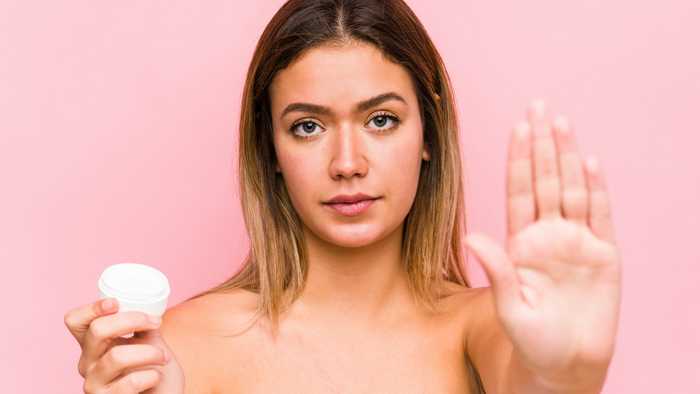
Another foaming agent that is widely used is Sodium Laureth Sulphate, (SLES), which can be contaminated with dioxane, a by-product of the manufacturing process and a known carcinogen. SLES is produced via ethoxylation. This is the process of reacting ethylene oxide with other chemicals to make them less harsh. Ethoxylation can create small amounts of 1,4-dioxane and leave residual ethylene oxide in the product. While this creates a surfactant that’s less irritating to the skin than SLS, it still carries the possible downside of dioxane.
Dioxane is very difficult to excrete from the body. The liver cannot metabolise dioxane properly and is so it is deposited in very undesirable parts of the body such as in the brain, lungs, liver, and heart.
The chief worry where SLS is concerned is the residual build-up in the system over time. SLS is considered safe when used as an ingredient in personal care products if it constitutes 1% or less of the total product. However, because it is so difficult to detox this ingredient the body can store SLS at much greater levels than is found in the products it’s derived from.
Because SLS and SLES are known to elicit skin reactions like irritant contact dermatitis and other forms of inflammation, many people seek treatment to ease the discomfort.
Emulsions, in the form of thick heavy creams, are often prescribed by doctors to treat inflammatory skin disorders. However, these kinds of emulsions may actually cause these skin disorders because surfactants are often used in these lotions to help stabilise them and extend shelf-life.
You can now see why at Oleo we refuse to use either SLS or SLES.
SLS/SLES Alternative
So, what's the alternative you might ask? Ammonium Laurel Sulphate, (ALS), is a much more preferable surfactant.
Although SLS and Ammonium Lauryl Sulphate, (ALS), are both classed as anionic surfactants, they possess very different molecular structures.
ALS has a much more complex structure that is considerably larger than SLS. This makes it virtually impossible for ALS molecules to penetrate the outer layers of the skin. Therefore, ALS is considered to be a lot less irritating than SLS. ALS is our surfactant of choice and can be found in our Gentle Facial Wash.
Another favourite surfactant of ours is Plantacare 2000. This is anon-ionic surfactant made from 100% renewable, plant-derived feedstocksand is certified sustainable. It has first-rate environmental and skin compatibility profiles, creating a perfect synergy of mildness, foam performance and effective cleansing. We use this in our Rosemary & Nettle Shampoo, all of our shower gels and hand wash.
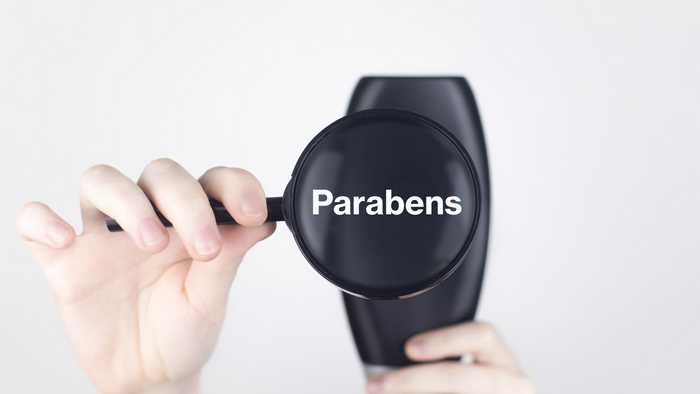
Parabens
Anyone who's skincare-aware will recognise one of the biggest names on the naughty list: parabens.
Parabens are a group of preservatives that are widely used in topical pharmaceutical products. They are also used in cosmetics, skincare and body care products, medications, foods, and industrially in oils, textiles and glues.
Parabens are cheap and they are used primarily to prolong shelf life and also to prevent the growth of bacteria/ mould etc within products. In chemical terms, they're a series of parahydroxybenzoates or esters of parahydroxybenzoic acid. When it comes to studying the label of your favourite skincare, the names to look out for are butylparaben, methylparaben and propylparaben, the most commonly found parabens.
In recent years there have been growing concerns about the use of parabens in self-care products. A British study found that 19 out of 20 women studied had parabens in their breast tissue. This has caused concern as it showed that the parabens in self-care products don't just sit on the skin but they can be integrated and remain into our bodily tissues. From such data, it has been speculated that parabens could potentially lead to cancer formation.
There is also some evidence that parabens can mimic the effect of oestrogen, which has again in turn been linked to cancer formations and infertility. Parabens can also commonly cause skin sensitivities and allergies. The skin sensitivities and allergies occur by repeated exposure to parabens to the skin, and then the immune cells in the skin slowly but significantly mount an immune response when parabens subsequently come into contact with the skin.
Parabens aren't just bad for humans, they impact the environment too. Parabens are believed to cause harm to marine life, where they've been found inside sea creatures and are also believed to damage and kill coral.
Parabens alternative
So, what is the alternative? It is not viable to produce skin and body care products that do not contain some form of preservative to keep them fresh.
At Oleo we use the following:-
Essential oils and extracts are natural preservatives that ward off bacteria. They do not have the toxicity of synthetic preservatives, but they remain effective. They are meant to be used in the short term, though, by those who will use a product quickly. Most oils and extracts break down relatively rapidly and can only be used for a maximum of a year. A drawback to essential oils and vitamins is they must be used in large concentrations to preserve a product and this can be more expensive.
Sodium benzoate is known as a preservative that is 100% natural. It has no side effects and is not expensive to produce. Sodium benzoate naturally occurs in fruits and roots in nature. Cranberries, prunes, greengage plums, cinnamon, cloves and apples all contain it.
Phenoxyethanol, ethylhexylglycerin is a versatile and effective, broad-spectrum preservative suitable for leave-on and rinse-off formulations. It is palm oil-free, formaldehyde-free, vegan and biodegradable.
Another favourite preservative of ours is Euxyl k700 which is ideal for personal care products. This mild blend has strong, broad-spectrum antimicrobial efficacy against bacteria, yeasts and moulds.
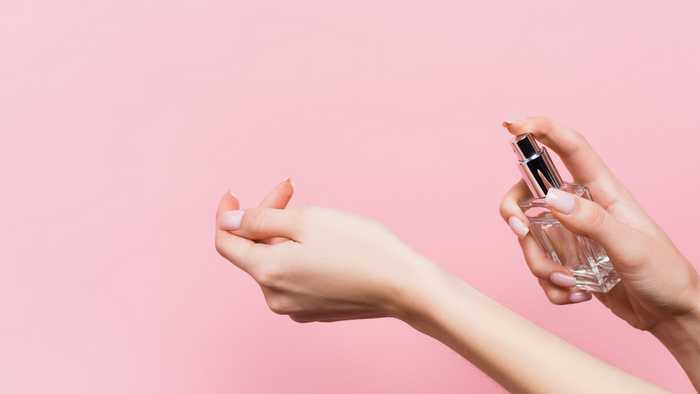
Synthetic/Artificial Fragrance (Including Phthalates)
"Parfum" — the mystery fragrance in everything from perfume to face wash and shower gel. It sounds innocent enough and smells nice too. But do you know exactly what it is?
”Parfum” or “fragrance” is a cocktail of mystery ingredients, which are often comprised of toxic ingredients including hormone disruptors amongst others.
This is worrying, since our hormones regulate almost everything from fertility, to weight, to acne.
Even more worrying, the secrecy of ingredients in perfume is protected by industry trade laws. That means companies or manufacturers using parfum don’t legally have to disclose what’s in it.
Parfum is a chemically manufactured scent that gives products an indulgent feel. But there's no functional purpose to it. The most common response to fragrances in products manifests as mild forms of allergic reactions ranging from irritation and redness to burning, itching and swelling, to dermatitis and hives.
Consider how many products you use and apply in a single day. Body wash, moisturiser, shampoo, deodorant, aftershave, perfume, foundation, lipstick. You could easily have used ten before even leaving the house - all of them with their own fragrance, seeking out the attention of our senses.
The more you use something, the more your exposure adds up. Absorbing a tiny amount of a toxic ingredient into your body every day adds up to a high volume over time.
You don't always need to see the word "phthalates" written on your cosmetic products; instead, you will see terms like "parfum" or "fragrance" on the labels which always means the product contains phthalates.
Pronounced THAL-ates, these chemicals are linked to endocrine disruption, developmental and reproductive toxicity and possibly cancer.
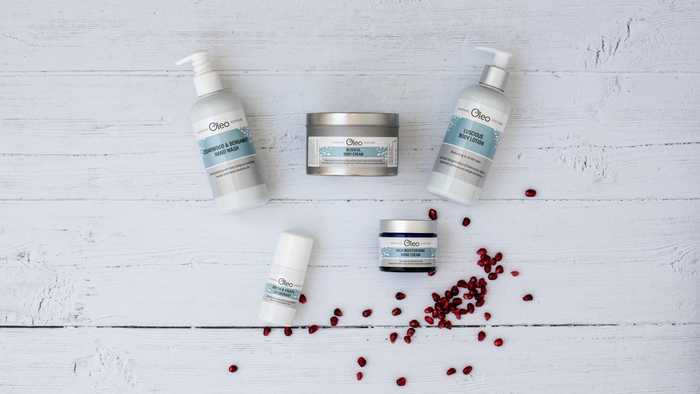
Synthetic/Artificial Fragrance alternatives
More and more businesses in health and beauty (Oleo Bodycare included) are investing in naturally-sourced ingredients.
Essential oils have many uses in aromatherapy to help ease muscle pain, skin problems, and other bodily afflictions. The reason essential oils are so valued is their use in skin and hair softening, skin moisturising, rash, and eczema relief, and their helpfulness in stress and migraine relief.
Synthetic fragrances don’t provide the same health benefits as essential oils, as they’re designed purely to mimic a scent. Nature is complex and essential oils are made of more than just scent components, which is why they are so difficult to recreate. When we isolate only the natural aromatic components from a plant, we miss out on the potential benefits the plant could offer.
The linchpin of Oleo Bodycare is its expert use of essential oils and our knowledge of the myriad effects that these can have on our bodies.
We would NEVER use artificial fragrances due to the adverse effects they can have on our systems AND, not surprisingly, they smell artificial!
Artificial Colour
A huge amount of skincare products sport beautiful yet highly unnatural almost fluorescent colours. Hair care, body washes, hand washes, and body lotions to name a few can be made in a variety of shades to make them more appealing.
These colours are very attractive and help beauty brands stand out in a crowded market and on photo-based sites like Instagram.
However, have you ever wondered how these colours are produced and whether you really want them on your skin?
These artificial colours are dyes made from a variety of synthetic chemicals, such as coal tar, petroleum or heavy metals salts like arsenic and lead. The first key problem with this is that a single dye can be formulated from dozens of chemicals that don't have to be individually listed on the label. This process makes it extremely difficult to know exactly what you are exposing your body to.
Many synthetic colours are associated with skin irritation and can block the pores which hinder the natural breathing process of the skin. This can lead to acne and is far from ideal in a skincare product.
If your skin care products contain colourants, these will be listed on the product's ingredient list. In the UK, both natural and artificial colourants are listed by their Colour Index Numbers and these will start with the letters CI followed by 5 digits.
In addition to plant-derived and synthetic colourants, beauty products can get their pigment from insect and animal-derived ingredients. One example of this is Carmine, a red dye derived from crushed cochineal beetles which are used to make cosmetics like nail varnish and lipstick red. This is not suitable for vegans.
You may find yourself choosing the bubble bath that best matches the colour of your bathroom, but there is no functional reason to add colours of any description to skincare or cosmetic products. They do not improve the effectiveness of the products and are only added to enhance branding and sales. This improvement in sales benefits the seller not you the buyer and should not be to the detriment of your skin.
Artificial Colour alternatives
To ensure that the Oleo range is suitable for all skin types, including sensitive skin, we do not use artificial colourants in any of our products.
Any colour that you come across in an Oleo product will be derived naturally from the essential oil it contains. Our vegan Replenishing Facial Moisturiser is a slightly yellowish shade.
This comes from the rose absolute and carrot oil which is used to enhance the performance of the cream and not to be aesthetically appealing. Likewise, our Geranium & Orange Hand Wash is an orange colour. This is because the orange essential oil that it contains is naturally this shade.
Artificial colourants may make a product look better, but they don’t make them better for you.
At Oleo Bodycare we are just as picky about what we put in our products as you are about what you use on your body. There is no room for compromise when we select ingredients. Only the highest quality pure essential oils and top-grade botanicals find their way into our formulations. We refuse to use damaging chemicals - aluminium, SLS/SLES, parabens, artificial colours or fragrances. As nature provides an abundance of safe, therapeutic ingredients, we see no reason to use anything synthetic or potentially harmful.
Choose cruelty-free, vegan skincare products. Choose Oleo Bodycare.
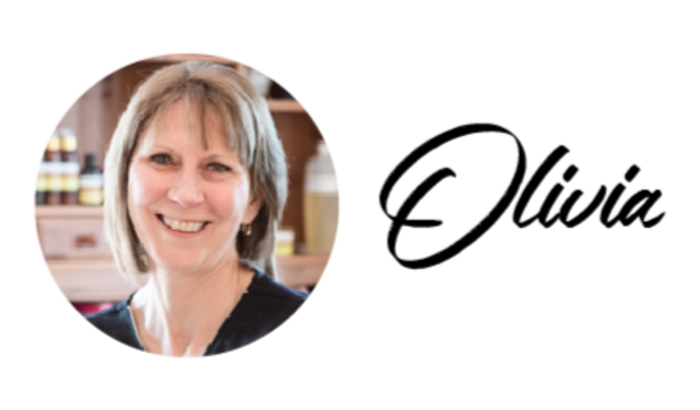
Blog by Olivia, Oleo Bodycare Founder


